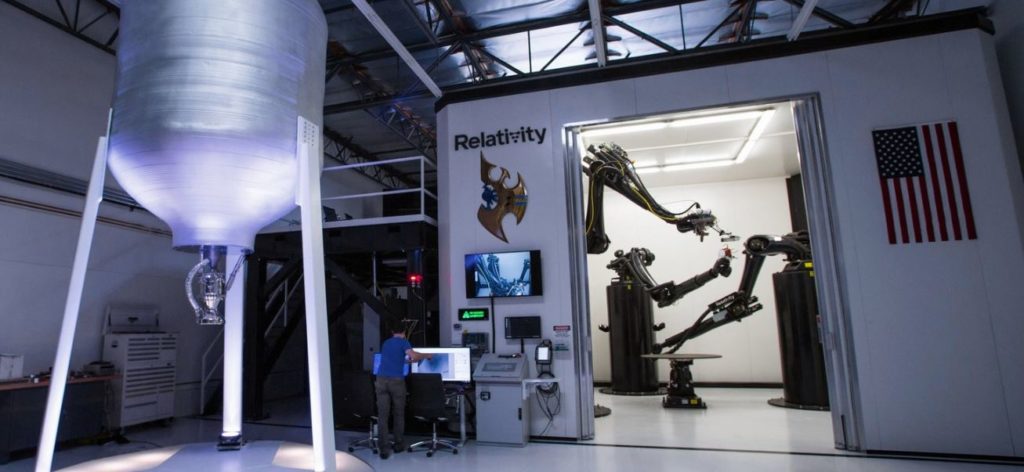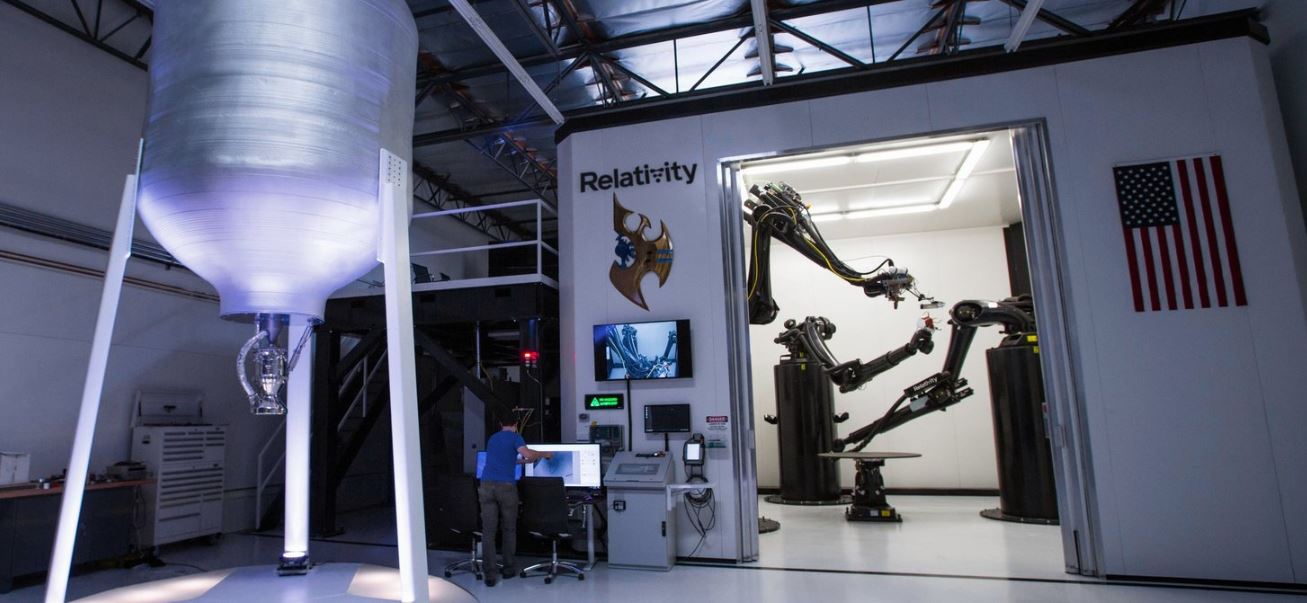
Relativity, a rocket company and launch services specialist for satellite constellations has announced the appointment of three aerospace veterans to its executive team. The company has also been granted an industry new patent for its autonomous 3D Printing technology.
Relativity envisions to build the world of tomorrow and the first step in reaching this goal is to start with rockets. Relativity’s platform combines intelligent robotics and additive manufacturing technology that served for the manufacturing of Terran 1, an entirely 3D printed rocket. The rocket has 100x lower part count than traditional rockets, a radically simple supply chain, and is built from raw material to flight in less than 60 days with unparalleled iteration speed.
The manufacturer deploys and resupplies satellite constellations with industry-defining lead time, flexibility, and cost, better connecting and securing our planet.
To ensure the successful achievement of its mission, Tim Buzza, Josh Brost, David Giger have joined the executive team. The three of them have extensive experience in the space industry.
Tim Buzza who joins the executive team as a Distinguished Engineer and was formerly an advisor in the company, is among the twelve-year executive at SpaceX, and former Co-President and Vice President of Launch at Virgin Orbit.
Josh Brost has spent 9 years at SpaceX and was responsible for securing $3 billion in contracts with the U.S. Government and commercial entities. He is now Vice President, Government Business Development at Relativity.
David Giger, a thirteen-year SpaceX veteran, directed engineering, program, and leadership responsibilities for over 200 engineers in the design, testing and build of the multi-billion-dollar Cargo Dragon and Crew Dragon spacecraft programs. He joins the team as Vice President, Launch Vehicle Development for Relativity’s Terran 1 rocket.
“Our progress towards launching the first 3D printed rocket is fueled by a deeply experienced team that has built and scaled other space companies, and Tim, Josh, and David are renowned leaders in their fields,” said Tim Ellis, CEO of Relativity. “These executive appointments, combined with our recent patent grant, are great indicators of Relativity’s market momentum.”
US. Patent Number US20180341248A1
The company’ granted patent concerns “real-time adaptive control of additive manufacturing processes using machine learning”. Dedicated to the aerospace technology, its 3D metal printing technology uses advanced sensors and control software. Terran 1 rocket illustrates the capacities of this technology. The rocket has been fabricated in less than 60 days, while traditional rockets take 18 months or more.
For further information about 3D Printing, follow us on our social networks and subscribe to our newsletter
Would you like to subscribe to 3D Adept Mag? Would you like to be featured in the next issue of our digital magazine? Send us an email atcontact@3dadept.com
//pagead2.googlesyndication.com/pagead/js/adsbygoogle.js (adsbygoogle = window.adsbygoogle || []).push({});

